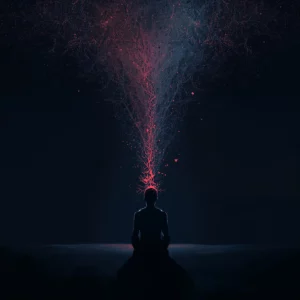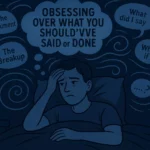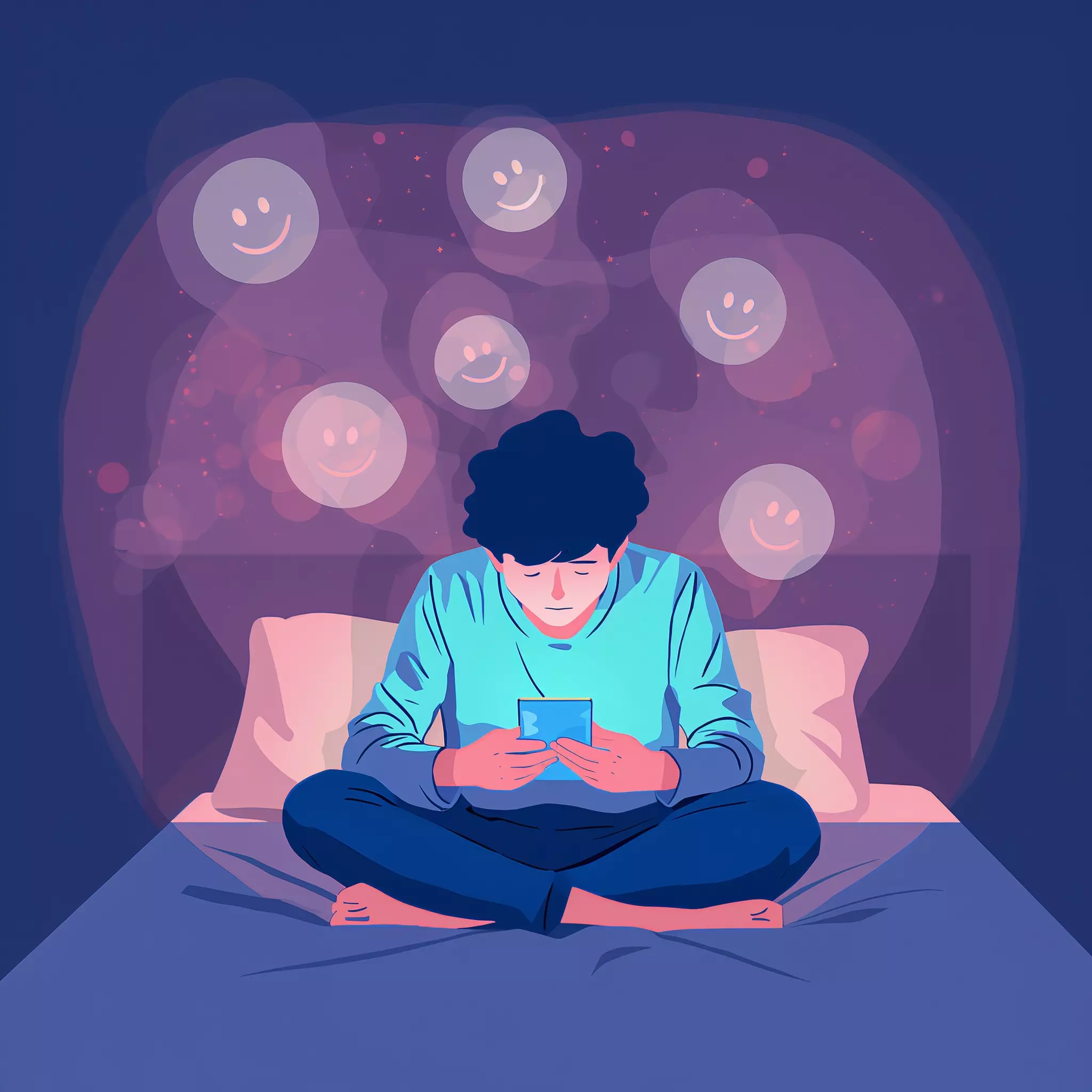Table of Contents
You tell yourself it’s just a scroll. Just one peek. Just a quick check to see if they’re hurting too—or worse, already moved on.
But before you know it, you’re tracing a blurry, tagged photo, dissecting a vague comment, and that familiar ache settles in your chest. You were doing okay. And now you’re not. Again.
Why do we do this?
Why, even when we know it hurts, do we keep stalking their socials?
It’s not mere curiosity—it’s breakup rumination, and it’s more powerful than we realize.
Breakup Rumination: Why You Can’t Stop Checking (Even When It Hurts)
After a breakup, the brain doesn’t just grieve—it searches. It craves closure, clarity, a sense of what happened. But often, we don’t get that. So the mind clings to the only place the person still “exists”: online.
Research from psychologist Tara C. Marshall revealed that those who check their ex via social media experience greater emotional distress, negative feelings, longing, and reduced personal growth following a breakup.
Staying connected—even passively—media-wise, keeps that emotional tether alive, slowing healing.
If you lean toward anxious attachment or tend to ruminate, the pull is even stronger. Studies show that people high in trait rumination are more likely to scrutinize an ex’s profile, which then impairs their overall adjustment and wellbeing.

The Real Cost of Stalking Their Socials
What starts as a coping mechanism quickly becomes a trap.
A new study published in Behavioural Brain Research (July 2025) reported that people exhibiting compulsive social media behaviors—what’s termed “love addiction”—including stalking romantic partners online, show cognitive impairments like brain fog, memory decline, and reduced focus.

Why Breakups Hurt So Much (Science of Heartbreak & Healing)
Let’s examine breakups in: Biology of love & loss, Attachment styles, Rejection psychology, Closure, Rumination, Grief
Tap here to read more →Higher emotional dependency, amplified by heavy Instagram and TikTok use, intensifies anxiety, depression, and mental fatigue.
Emotionally, it’s like keeping fresh pressure on a bruise—you just keep reopening the pain. The brain never gets space to move on.

How to Stop the Cycle
Here’s the hard truth: Healing requires absence.
- Step One: Structural Detachment
Remove the stimulus—mute, unfollow, or block. Not petty, but protective. Your brain needs a pause from reactivation. - Step Two: Emotional Processing
You’re not breaking a habit—you’re grieving a bond. Replace checking with soothing rituals:- Journal unsent letters or lingering thoughts
- Practice mindfulness to calm rumination
- Seek therapy or peer support to unpack unresolved emotions
Studies show that disconnecting digitally accelerates emotional clarity—not because you got over it faster, but because you gave yourself the space to do so.
You don’t need to know what they posted last night.
What you need to know is how you feel right now.
Who you’re becoming beyond heartbreak.
Every time you resist the scrolling urge, you choose yourself—one choice at a time.
And in time, that becomes freedom.
FAQ
Q1. Why do I keep checking my ex’s social media even when I know it hurts?
Because of unresolved attachment and emotional rumination, your brain searches for closure through their online presence.
Q2. What are the real consequences of stalking an ex on social media?
It prolongs heartbreak, increases anxiety, and impairs memory and focus over time.
Q3. How can I stop the cycle and stop checking their socials?
Unfollow or block to remove temptation and redirect your emotions through journaling, therapy, and mindfulness.
Q4. Is it really necessary to go no-contact online?
Yes. Research shows digital distance significantly accelerates emotional healing.
Scientific Sources
-
T.C. Marshall (2012): Facebook Surveillance of Former Romantic Partners
Key Finding: Monitoring an ex on Facebook is associated with greater emotional distress and slower post-breakup recovery.
Why Relevant: Shows that digital surveillance fuels rumination and emotional pain post-breakup.
https://www.ncbi.nlm.nih.gov/pmc/articles/PMC3472530/ -
Y. Kanemasa et al. (2024): Attachment anxiety and the dark triad increase stalking
Key Finding: Attachment anxiety increases post-breakup stalking behaviors due to heightened anger and rumination.
Why Relevant: Connects anxious attachment, rumination, and digital stalking behaviors.
https://pubmed.ncbi.nlm.nih.gov/38268384/ -
Italian researchers via Behavioural Brain Research (2025): Love addiction and social media stalking linked to brain fog, memory issues, reduced attention
Key Finding: Persistent social media stalking of exes leads to cognitive impairments and emotional distress.
Why Relevant: Illustrates the mental toll of repeated rumination through digital behavior.
https://nypost.com/2025/07/26/lifestyle/love-addiction-linked-to-brain-fog-and-memory-issues/
- Soothing the Spiral: Grounding Techniques for Breakup Rumination That Really Work

- Breakup Rumination Trap: Why You Stalk Their Socials (and How to Stop)

- Powerful CBT for Rumination: Break Free from Heartbreak Loops

- Breakup Rumination: Why You Can’t Stop Thinking About the Pain of the Past

- Breakup Rumination Hell: How to Escape the Pain Loop for Good

- Powerful Writing Therapy for Rumination: Find Peace After Heartbreak

- Breakup Rumination Relief: Powerful Ways to Interrupt the Thought Spiral

- Dopamine and Breakup Rumination: The Surprising Science Behind Why You Can’t Stop Thinking About Your Ex

- Breakup Rumination: The Powerful Truth About Why You Can’t Stop Thinking About Them


Leave a Reply